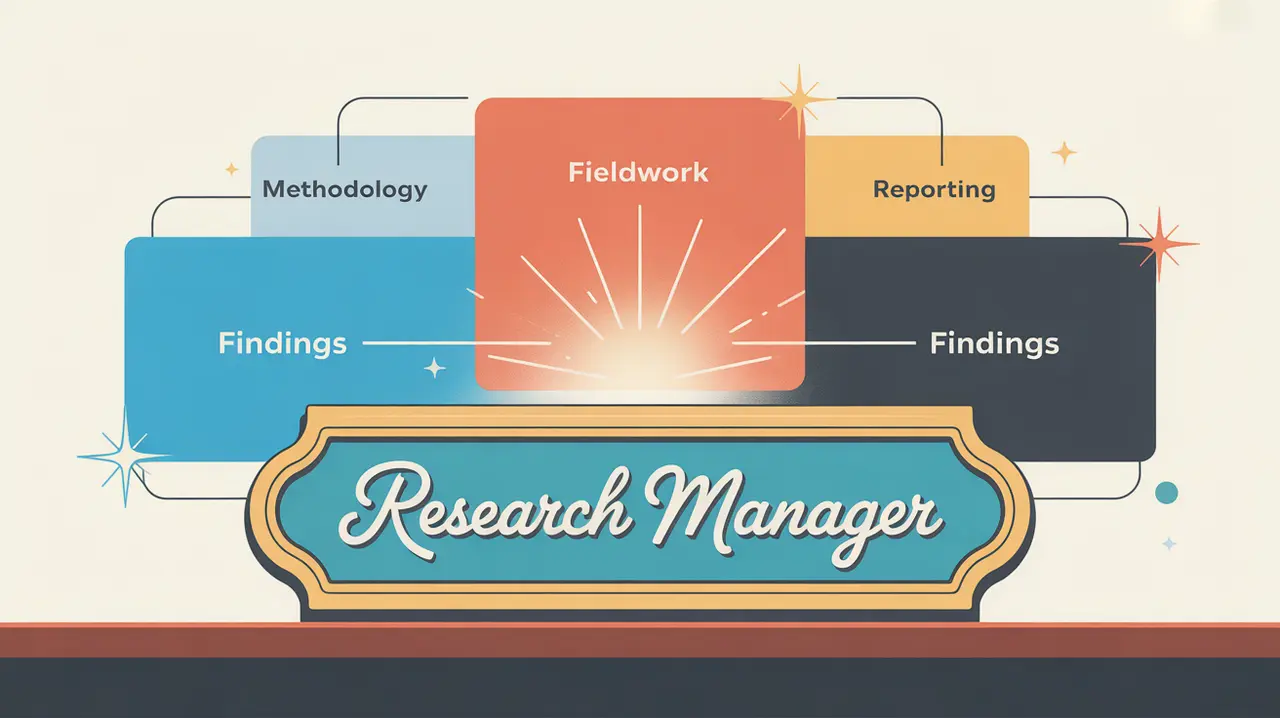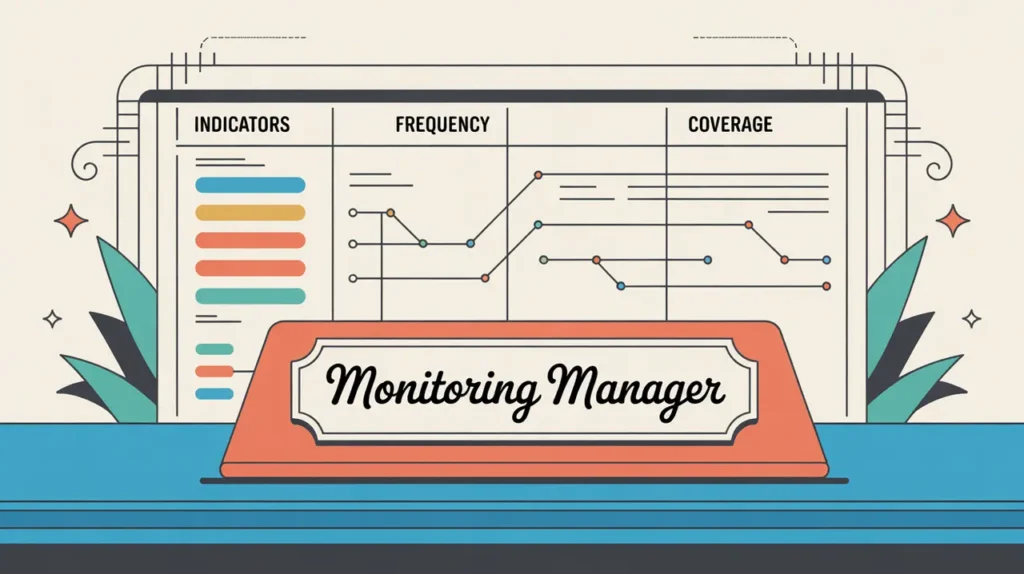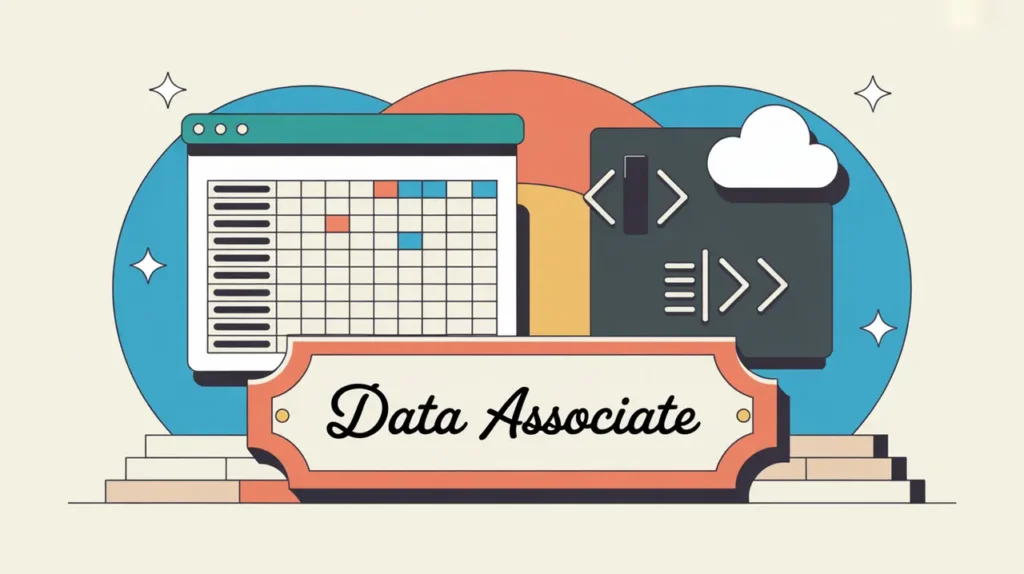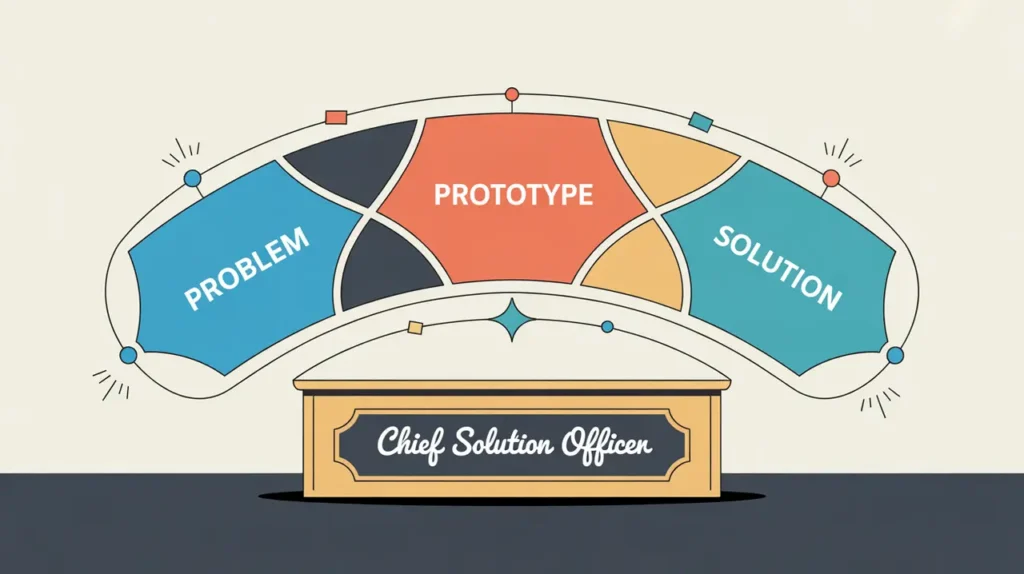What Does the Research Manager Role Involve?
A Research Manager is responsible for overseeing the design, implementation, and strategic integration of research activities within an organization. They manage research teams and projects, ensure methodological rigor, coordinate partnerships, and translate evidence into actionable insights for programs, strategy, and policy. Their role sits at the intersection of technical research leadership and organizational decision making, ensuring that research is both high quality and relevant to the organization’s goals.
In nonprofits and social enterprises, Research Managers play a pivotal role in shaping evidence agendas, guiding research priorities, and ensuring that data and analysis inform real-world action.
At What Level does this Role Operate?
Mid to Senior Level: Research Managers typically report to a Director of Research, MEL Lead, or Program Director. They oversee multiple research projects or a research portfolio, lead teams of associates and assistants, and often manage relationships with external research partners. They provide both strategic direction and operational oversight.
Relative Employability: Research Manager roles are in strong demand across nonprofits, think tanks, international NGOs, academic institutions, and development agencies that prioritize evidence-based programming. They are especially valuable in organizations managing complex research portfolios or impact evaluations.
Relative Pay Scale: Research Managers generally occupy the upper mid to senior pay bands, reflecting their leadership, analytical expertise, and strategic responsibilities. Their compensation sits above associate and specialist levels and may align with program or MEL managers.
What are the Key Responsibilities and Activities?
- Lead the design and implementation of research strategies and agendas aligned with organizational priorities
- Oversee multiple research projects, ensuring methodological rigor, ethical standards, and high-quality outputs
- Manage and mentor research teams, including associates, assistants, and external consultants
- Develop research tools, frameworks, and protocols that ensure consistency and reliability across studies
- Coordinate data collection and analysis efforts, including managing partnerships with academic or field research institutions
- Review and synthesize findings into briefs, reports, and presentations for leadership, funders, and partners
- Translate research findings into actionable recommendations that inform programs, strategy, and policy
- Manage budgets, timelines, and deliverables for research projects and portfolios
- Represent the organization in research networks, partnerships, and conferences
What Core Competencies and Qualifications are Needed?
Required Qualifications and Experience
The following reflect common qualifications and experience expected for this role, while recognizing that pathways may vary by context, organization, and region.
- Advanced academic background in social sciences, economics, public policy, education, or related fields
- Significant experience in applied research, including managing complex projects and teams
- Proven expertise in quantitative, qualitative, or mixed-methods research design and implementation
- Proficiency in research and data analysis tools (e.g., Stata, R, SPSS, NVivo) and familiarity with AI-supported analysis
- Experience translating research into actionable insights for programs, policy, or strategy
- Strong leadership and team management experience
Key Competencies
- Strategic thinking to align research with organizational objectives
- Methodological rigor and analytical depth across multiple research approaches
- Leadership and mentoring skills for diverse research teams
- Strong project management and coordination abilities
- Excellent communication and synthesis skills for varied audiences
- Partnership-building and stakeholder engagement capabilities
- Adaptability and problem solving in complex research environments
How are AI and Automation Shaping this Role?
An AI-native Research Manager can leverage AI to manage large and complex datasets, automate data cleaning and analysis workflows, and support predictive modeling. AI tools can help generate rapid evidence syntheses, visualize complex findings, and monitor data quality in real time. This enables managers to focus more on strategic research design, stakeholder engagement, and integrating evidence into decision making.
What Career Pathways and Transferable Skills are Associated with this Role?
Research Managers can progress to roles such as Director of Research, MEL Director, Strategy Director, or Program Director. Their leadership in evidence generation and application makes them well suited for senior roles in program strategy, policy development, or organizational learning. Over time, they may lead institutional research agendas, manage cross-sector research partnerships, or shape policy through high-level evidence translation.







